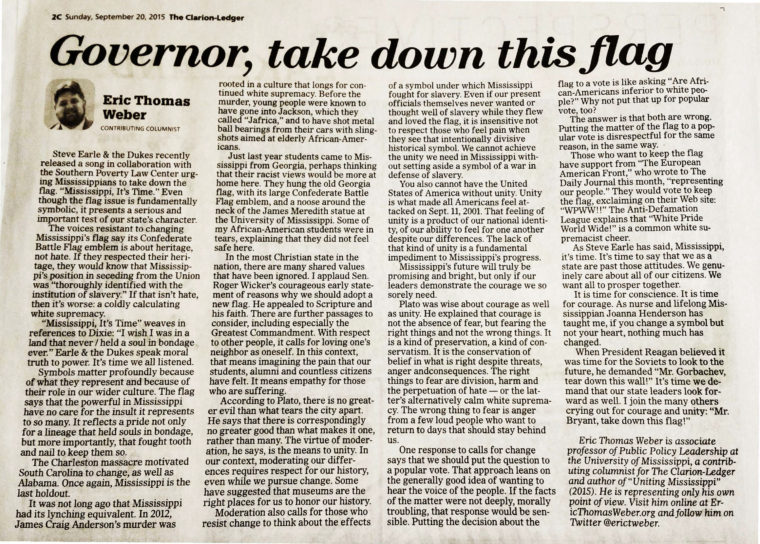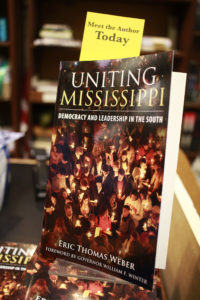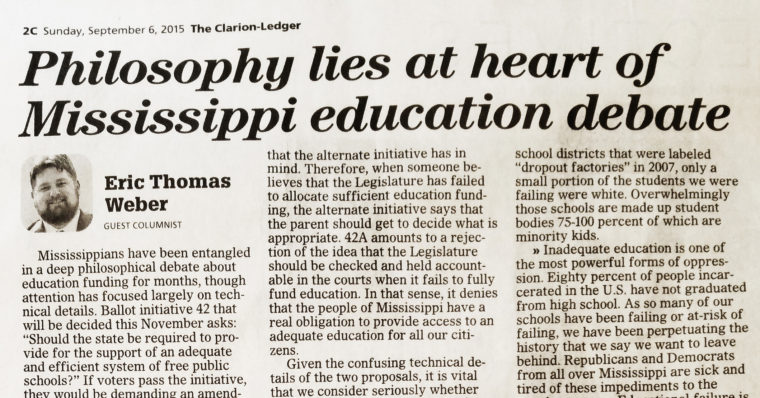Mississippi offers a clear example of Plato’s worry about disunity. One of the four virtues that he clarifies in The Republic is moderation, which is important for avoiding the extremes of behavior or of belief. What is most famous about Plato is his conclusion that the good city needs philosopher-kings, that leadership most fundamentally must be guided by wisdom. While that is true, it misses what Plato’s Socrates calls the greatest good for the city, the absence of which yields the greatest evil.
Plato’s Socrates asks “Is there any greater evil we can mention for the city than that which tears it apart and makes it many instead of one? Or any greater good than that which binds it together and makes it one?” Yes, wisdom is the most important virtue in one sense, for Plato, but when it comes to the public good, wisdom should be most concerned about division, and most fervently and wisely striving for unity. Without the latter, a state, divided against itself, only falls apart or fails at its aims.

Continue Reading »


























 About Me
About Me